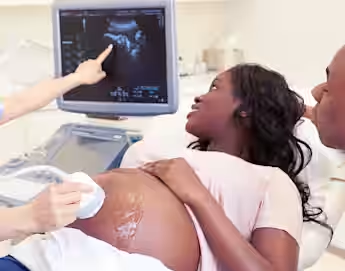Last week saw the first meeting of the Royal College of Obstetricians and Gynaecologists' (RCOG) race equality taskforce, primarily to tackle the disproportionate risk of maternal death faced by women from a BAME background.
An MBRRACE-UK (Mothers and Babies: Reducing Risk through Audits and Confidential Enquiries) report published last year contained the terrible statistic that black women are five times more likely to die in pregnancy or childbirth than white women and Asian women are nearly twice as likely. It also reported that women from these ethnic groups have a greater risk of their baby dying in the womb or immediately post-natal than white women.
According to the report, the main cause of deaths for these women during pregnancy were heart disease, followed by blood clots, epilepsy and strokes, diabetes, sepsis, mental health, bleeding, pre-eclampsia and cancer.
Women from BAME backgrounds are generally at greater risk of long-term health problems than white women, with black women more likely to have conditions that can put them at greater risk, including cardiac disease, diabetes and high blood pressure, with some of the reasons attributed to social factors associated with health, including poverty, education and housing and, I would add, living in areas lacking good hospitals or having access to primary healthcare.
A study into access to primary healthcare highlighted by the UK charity Maternity Action which specifically focusses on inequality and health of pregnant women and young children mentions, for example, the difficulty of combining caring responsibilities with healthcare – i.e. that GP surgeries are set up so that appointments are available by phone first thing in the morning when many women are taking children to school, and that if they do get an appointment, they must then take their children with them, creating difficulties in discussing certain issues.
But, importantly, other research into racial inequality and its impact on maternal and infant mortality from the US shows that Black and Asian women with no pre-existing health conditions, with English as their first language and from middle-class backgrounds still have worse outcomes compared with white women from similar backgrounds – meaning additional factors are at play.
To coincide with the RCOG task force meeting, campaign group Five x More has launched Five Steps for healthcare professionals to tackle the mortality disparity that has been going on for years, and the Government is under increasing pressure to act and introduce targets to reduce it.
Where the medical negligence team here in Manchester and in London mainly encounters this racial inequality is regarding the high number of obstetric and maternal negligence cases we take on for women and families from the BAME community.
Substandard and negligent maternity care results in maternal and neonatal deaths and catastrophic brain injury to babies. We find that time and again, witness statements provided by claimants and their families about the maternity negligence they have experienced include reference to language barriers, cultural differences, the fear of speaking out and simply not being listened to – which has absolutely nothing to do with a higher maternal risk of certain diseases and all to do with the standard of care provided.
The Fieldfisher medical negligence team in Manchester and London is pleased to sit on the panel of AvMA (Action against Medical Accidents) whose remit is to lobby for patient safety and justice. AvMA has and continues to contribute to research and discussion around reducing racial disparity in maternity care and outcomes, not least the recent disturbing reality that pregnant women with a BAME background have up to eight times the risk of being admitted to hospital as a result of Covid.
We will work with AvMA to highlight the racial disparity that has existed for generations and to lobby the Government to implement practical solutions to improve maternity care for women so adversely affected.

